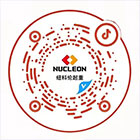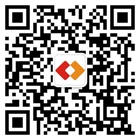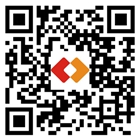Nucleon is a professional crane manufacturer and material handling solution provider.
2022-06-13
Please don’t lift in case of the following situations:
1. The crane and its safety devices and braking devices have abnormal noises;
2. The state and weight of the object are unknown, or overload;
3. The sling is unqualified, and the sling is damaged;
4. Unbalanced or loose heavy objects;
5. Objects with sharp edges and without pads;
6. Uneven pulling, or using it to hang the workpieces just for convenient processing;
7. Charged objects and buried objects;
8. Hazardous chemicals without safety measures;
9. Person or floating objects on the heavy objects;
10. There is no special person to guide, the guide signal is unclear or the without good view.
Please don’t lift in case of the following situations:
1. Lifted object may bump into other objects;
2. People without leaving the safe zone;
3. Hang the workpieces just for convenient processing;
4. The hook has no anti-unhook device or the hanging object is easy to slip off with the hook;
5. 2 or more steel plates lifted at one time with clamps;
6. The lifting beam is higher than 1.5 meters from the ground or and there is no rope at both ends of the lifter beam;
7. Hanging chains, wire ropes, steel plates, etc. are pulled out under the hanging objects, which are easy to overturn the objects;
8. The hooks, clips, ropes and chains without leaving the hanging object;
9. There is people under the crane;
10. Thunderstorm days, strong winds above level 6.
Please don’t run the crane in case of the following situations:
1. There is ropes, clip, chains on the hook, and no one help;
2. There are people, objects, and wires beside the track;
3. There is no bell, or the bell does not ring, or people don’t leave when ringing;
4. Crane may collide with other cranes or objects.
5. rainy days or foggy days without good views.
Please report it in case of the following situations:
1. Weld Cracking of ladder rail;
2. The glass is broken;
3. Rotten of insulation board, and there is a leakage of electricity;
4. The crane is not parked properly due to power failure or crane damage;
5. Anyone who violates the regulations.
Safety Operation Rules for Crane Drivers
1. Crane drivers are special operators, who must accept the professional safety technical training, pass the examination and obtain the Special Equipment Safety Operation Certificate, be familiar with the national standard command signals.
2. Check carefully the machinery, electrical appliances, control systems, safety protection devices, safety devices, signal devices, and fire extinguishers, to confirm the interlock and limit device are flexible and reliable, and they shall be recorded in the shift record book;
3. Drivers shall walk and get up and down on the designated safe passages and dedicated platforms. The driver must concentrate on the operation, and are not allowed to engage in distracting activities (playing with mobile phones, chatting, etc.). The crane should ring the bell first when starting, hoisting, placing objects, asking for avoidance or prompting attention.
4.The driver must press the signal of the lifting commander, and can operate after getting the accurate command signal. When the command signal is unclear, the driver shall use the bell to send out a repeated signal to confirm the commander, and the operation can be carried out only after the command intention is clear.
5. When lifting heavy tonnage objects, test lifting must be carried out before lifting. Lift the heavy objects within 30 cm of the ground or support, stop and observe, and confirm that the slings, lifting objects, and the crane are stable, and there is no abnormality or abnormal noise before lifting.
6. In the event of multiple (two or more) commanding or illegal commanding, the driver has the right to refuse the operation.
7. When using the sling to lift, turn over, and transfer, you must observe it, keep away from objects with edges, corners and openings, and prevent the sling from breaking and causing accidents due to touch. For cranes with main and auxiliary hooks, raise the unused hooks to the top during operation. It is strictly forbidden to use two hooks to lift two objects at the same time, and it is forbidden to operate three handles or buttons at the same time.
8. If someone is in the dangerous area. Do not use the crane. When the hook is close to the lifting limiter, and the crane or trolley are near the terminal to meet other cranes, the speed should be slowed down, and use the jog operation. Reverse operation is not allowed to replace the brake operation, don’t use limiter replaces the parking, don’t use emergency stop switch replaces the ordinary switch. Objects long stay hanging are not allowed.
9. If there is a sudden power failure during operation, the switch handle must be turned to the "zero" position, and the hanging object is not put down or the sling is not unhooked, and it is not allowed to leave the driver's cab. If the power cannot recover for a while, corresponding measures should be taken (slowly loosening the lifting brake manually) to lower the hanging object.
10. If the brake fails and the hanging object slides down automatically during the hoisting, the driver must keep calm. First of all, sound a warning to make other personals quickly avoid it, and at the same time, the reverse jog shall be done, move the hanging object to the empty space, and slowly drop the hanging object to the ground.
11. When the open-air crane encounters heavy rain, lightning, heavy fog or strong winds above level 6, relevant emergency plans should be installed and implemented. Stop the work, cut off the power, lock with the rail clamp and plug the iron shoes at the same time, and insert the anchoring device.
12. After the work is over, the crane shall stop at the specified position, raise the hook, drive the trolley to the end, and return all the control handles to the "zero" position to cut off the power supply. The open-air crane should be locked by the rail clamp, the iron shoes should be plugged, and the anchor should be inserted.
 TikTok QR Code
TikTok QR Code
 WeChat QR Code
WeChat QR Code
 Homepage QR Code
Homepage QR Code
Tel:+860373-8622016
Fax:0373-8622001
Email: nucleon@nucleon.com.cn
Address:crane indusry park, Changyuan City, Henan Province, China
